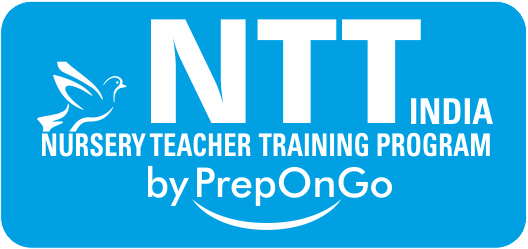How to Be a Nursery Teacher

Becoming a nursery teacher is a rewarding career choice that allows you to shape the early learning experiences of young children. If you are passionate about working with children and want to make a difference in their formative years, here is a comprehensive guide on how to be a nursery teacher.
1. Understand the Role of a Nursery Teacher
Before embarking on the journey to become a nursery teacher, it’s essential to understand what the role entails. Nursery teachers work with children aged 3-6, focusing on their overall development. This includes teaching basic literacy and numeracy skills, fostering social and emotional development, and creating a safe and stimulating learning environment.
2. Educational Requirements
To become a nursery teacher, you need to meet specific educational qualifications:
- High School Diploma or Equivalent:
- The first step is to complete your high school education or obtain an equivalent qualification.
- Relevant Degree or Diploma:
- Enroll in a degree or diploma program in Early Childhood Education (ECE) or a related field. These programs provide foundational knowledge in child development, teaching methods, and curriculum planning.
- Nursery Teacher Training (NTT):
- Completing a specialized Nursery Teacher Training course is highly recommended. The NTT program focuses specifically on the skills and knowledge required to teach young children effectively.
3. Gain Practical Experience
Hands-on experience is crucial in becoming a successful nursery teacher. Here’s how to gain practical experience:
- Internships:
- Participate in internships or practicum experiences offered by your educational institution. These opportunities allow you to work in real classroom settings under the supervision of experienced teachers.
- Volunteering:
- Volunteer at local preschools, daycare centers, or community programs. Volunteering provides valuable experience and helps you build your resume.
- Observation:
- Spend time observing experienced nursery teachers to learn effective teaching techniques and classroom management strategies.
4. Develop Essential Skills
To excel as a nursery teacher, you need a specific set of skills:
- Patience and Compassion:
- Working with young children requires immense patience and compassion. Understanding their needs and emotions is key to creating a nurturing environment.
- Communication Skills:
- Effective communication with children, parents, and colleagues is vital. Being able to explain concepts in a simple and engaging way helps children grasp new ideas.
- Creativity:
- Incorporating creativity into your teaching methods makes learning fun and engaging for young children. Use arts, crafts, music, and games to enhance the learning experience.
- Classroom Management:
- Managing a classroom of young children requires strong organizational skills and the ability to maintain discipline in a positive manner.
- Observation and Assessment:
- Regularly observe and assess children’s progress to tailor your teaching strategies to their individual needs.
5. Obtain Certification
In many regions, nursery teachers are required to be certified or licensed. Check the specific requirements in your area and ensure you obtain the necessary certification. This may involve passing exams and fulfilling additional training requirements.
6. Continuous Professional Development
Education is an ever-evolving field, and continuous professional development is essential. Stay updated with the latest trends, research, and teaching methods in early childhood education by:
- Attending Workshops and Seminars:
- Participate in workshops, seminars, and conferences related to early childhood education.
- Joining Professional Organizations:
- Become a member of professional organizations such as the National Association for the Education of Young Children (NAEYC) or local early childhood education associations.
- Pursuing Advanced Degrees:
- Consider pursuing advanced degrees or additional certifications to further your knowledge and career prospects.
7. Seek Employment
Once you have completed your education, training, and certification, it’s time to seek employment. Here are some tips:
- Prepare a Strong Resume:
- Highlight your education, training, practical experience, and any additional skills that make you a suitable candidate.
- Job Search:
- Look for job openings at preschools, daycare centers, and early learning centers. Utilize online job portals, professional networks, and local job fairs.
- Prepare for Interviews:
- Be ready to discuss your teaching philosophy, experience, and how you handle various classroom situations during interviews.
8. Embrace the Role
Once you secure a position as a nursery teacher, embrace your role with dedication and enthusiasm. Remember that you are shaping the minds and futures of young children. Foster a love for learning, provide a supportive environment, and continuously strive to improve your teaching practices.
Conclusion
Becoming a nursery teacher requires a combination of formal education, practical experience, and essential skills. By following these steps on how to be a nursery teacher, you can embark on a fulfilling career that makes a significant impact on the lives of young children. Embrace the journey, stay committed to professional development, and enjoy the rewarding experience of guiding children through their early years of education.
